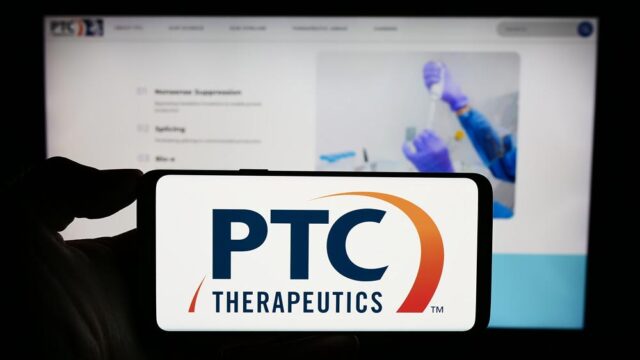Advertisment
Johnson & Johnson to present 25 abstracts on Generalized Myasthenia Gravis at AANEM and MGFA 2024, featuring promising nipocalimab data

Johnson & Johnson announced that 25 abstracts featuring robust research to understand unmet needs in generalized myasthenia gravis (gMG) and evaluate nipocalimab as a potential advanced treatment option will be presented at the 2024 American Association of Neuromuscular & Electrodiagnostic Medicine (AANEM) Annual Meeting and Myasthenia Gravis Foundation of America (MGFA) Scientific Session from October 15-18, 2024 in Savannah, Georgia.
16 abstracts will be shared at the MGFA Scientific Session, including three oral presentations about nipocalimab, an investigational product:
- Positive results from the Phase 2/3 Vibrance-MG study of nipocalimab in adolescents living with gMG. (Abstract #MG100)
- New analyses from the Phase 3 Vivacity-MG3 study of nipocalimab in antibody-positive (anti-AChR+, anti-MuSK+ or, anti-LRP4+) adults reporting early improvement in clinical symptoms with nipocalimab after treatment initiation (e.g., 1 week), and sustained response over 8, 16, and 24 weeks. (Abstract #MG102)
- Assessment of nipocalimab as an immunoselective investigational therapy through the analysis of antibody levels detected in the blood after receiving certain vaccines, highlighting the potential ability to maintain a protective immune response even after reduction of IgG autoantibodies is observed. (Abstract #MG111)
The presentations also include real-world data on the patient experience and challenges associated with gMG, including negative impact of the disease on speaking, swallowing and breathing as well as factors associated with exacerbations of gMG, including mental health and challenges in managing the condition during pregnancy.
“The data to be presented at AANEM and MGFA highlight the unmet need that continues to exist for the broad population of people living with gMG as well as the clinical and biological profile of nipocalimab,” said Katie Abouzahr, M.D., Vice President, Autoantibody Portfolio and Maternal Fetal Immunology Disease Area Leader at Johnson & Johnson Innovative Medicine. “We remain committed to deepening our understanding of gMG and of nipocalimab in the potential treatment of this rare disease as we progress the study of this investigational FcRn therapy through a comprehensive clinical program.”
The full list of accepted Johnson & Johnson abstracts is below.
Data presentation highlights: MGFA Special Session – October 15
*Indicates also being presented as a poster at AANEM (Oct. 16-18)
| Presenter/Presentation Time (ET)
Poster Number |
Abstract Name |
| Oral Session | |
| Jonathan Strober, M.D.
10:24-10:31am* (MG100) |
Safety and effectiveness of nipocalimab in adolescent participants in the open label Phase 2/3 Vibrance-MG clinical study |
| Tuan Vu, M.D. 10:38-10:45am* (MG102) | Efficacy and safety of nipocalimab in patients with generalized myasthenia gravis: topline results from the double-blind, placebo-controlled, randomized Phase 3 Vivacity-MG3 study |
| Faye Yu, BS 11:32-11:39am* (MG111) | Post-hoc analysis of clinically relevant anti-vaccine antibodies in participants treated with nipocalimab |
| Poster Session | |
| MG4* | Assessing the suitability of the NeuroQoL Fatigue to evaluate fatigue in patients living with gMG |
| MG25 | A randomized, open-label study on the effect of nipocalimab on vaccine responses in healthy participants |
| MG31 | Disease burden in patients with generalized myasthenia gravis |
| MG52* | Leveraging AI to characterize mental health experiences throughout the myasthenia gravis diagnosis journey |
| MG53 | Uncontrolled myasthenia gravis can contribute to additional stress burden and adverse mental health experiences |
| MG54 | Sentiment analysis of digital conversations related to myasthenia gravis by race/ethnicity
Data presentation highlights: AANEM-only – October 16-18 |
| MG55* | Factors influencing exacerbations and crises in gMG: findings from a claims database study |
| MG56 | Impact of race and social determinants of health on exacerbations in generalized myasthenia gravis |
| MG60* | Perinatal treatment patterns in myasthenia gravis |
| MG61* | Adverse pregnancy outcomes in myasthenia gravis: A retrospective cohort study in a US health insurance claims database |
| MG62 | Partnering with patients and caregivers to guide the development of impactful study engagement tools in a generalized myasthenia gravis real world study |
| MG76 | Post-hoc evaluation of the clinical effects of nipocalimab, a new neonatal fragment crystallizable blocker, over time in the Vivacity-MG 3 study |
| MG82 | Symptom severity assessment using MG-ADL items and domains in a 24-week, Phase 3 study (Vivacity) of nipocalimab in gMG |
| Poster Number | Abstract Name |
| Poster Session | |
| MyReg RWE (#143) | Treatment outcomes among patients with generalized myasthenia gravis in the Czech Republic: results from MYasthenia gravis REGistry (MyReg) |
| MG-REST Canada (#256) | Interim results for myasthenia gravis-resource utilization, epidemiology, survival & treatment patterns (MG-REST) study in Ontario, Canada |
About Generalized Myasthenia Gravis (gMG)
Myasthenia gravis (MG) is an autoantibody disease in which the immune system mistakenly makes antibodies (e.g., anti-acetylcholine receptor [AChR], anti-muscle-specific tyrosine kinase [MuSK] or anti-low density lipoprotein-related protein 4 [LRP4]), which target proteins at neuromuscular junction and can block or disrupt normal signaling from nerves to muscles, thus impairing or preventing muscle contraction.1,2





